I'm Taking Matters Into My Own Hands (a reintroduction)

to tryIndividuality
The other morning, while I sat outside my building waiting to begin my day, I watched as the bustling morning traffic navigated the many under-construction roads. What struck me was a lady dressed in yellow from head to toe, wearing a pink hard hat decorated with stickers, and waving a red flag to direct cars through her site. Her frustration was one many of us share: nobody is paying attention. The first car in line waiting to go through held up a block of traffic as the construction worker competed with the phone for the driver’s attention. These distractions that the modern human faces play on our existing features. We are attracted to the bright and shiny. We are addicted to notifications. But what about the real-world notifications we are missing because our attention is captured by artificial worlds? Shouldn’t a bright yellow vest and a red flag be enough to garner the driver’s attention? There are signs everywhere, guiding us on a path, but so often we miss them for the artificial or question their integrity.
This growing problem of artificial notifications sheds light on the larger issue at hand. While attention is diminishing and patience wears thin, the root of the problem appears to be the lack of connection between individuals. Arguments for an internet world that connects us faster and more broadly have been made. Frankly, it hasn’t been a good one. Access to information about others has been made easy, but rarely do we consider this from a flipped perspective: access to information about ourselves is just as easy to obtain. Our habits, likes and dislikes, routines, social circles, and thoughts are all readily available information. Data points about us are collected every time we purchase, post, and connect. With this increase in availability has come the suffocation of our agency to respond. It is our attention that has been captured by the artificial in hopes of turning a profit. Yet, the human does not exist in the artificial world; it exists in the natural world. Logging off of the artificial doesn’t end a life like the lack of attention to the physical does.
Action requires attention, and before we act, there is a space that allows for the decision to act. This decision room is often frequented by our most demanding urges- to yell, to run, to fight, to freeze. These instincts do not use the space in a contemplative way; they run through it like a cheetah chasing its prey. We might instead consider these to be impulses. Acting on impulse prevents one from taking in the context that facilitates a decision. It is not that one has suddenly arrived at a moment that requires an action, but that a series of other moments have led to this one. Without taking the time to decide on a response, a reaction will be used in its place. The current landscape of modern media encapsulates this best: everyone is reacting, no one is responding.
Response demands that one sit with how an event actually makes them feel. Choosing a response takes time, something that has been devalued by the incentive structures of the media. Where the news cycle, originally termed “News Cycle” as the time between newspaper editions, has grown increasingly shorter. There isn’t enough time to consider the implications of new information because that information is quickly replaced by something else. Our attention is the hottest commodity. It is bought by what we place it in and sold by this place. However, this has infiltrated our intimate lives, where we no longer hold our attention for others. You should be able to drive to the store without looking at your phone. You should be able to sit in silence alone. You should be able to be alone with your thoughts (more on that later).
The truth seems obvious: reactionary media has intruded on our livelihood, disgruntling and exhausting the public. We might consider that our habit of continuing to entertain such reactions only feeds it more. What we give our attention to grows. This division amongst us has gone on to foster the idea that “we don’t owe each other anything.” To work with this assumption is to fall for a false understanding of individualism. That we all somehow exist independently of each other and that our actions have no implications on others is the greatest division that the internet has created. We owe it to each other to tryis our best, considerate of others, and patient. I shouldn’t be afraid to cross at a crosswalk because someone isn’t paying attention. We owe it to each other to pay attention.
The decision room for our actions is growing smaller, and with this diminishing space, everyone is moving so frantically to keep up with their lives instead of creating their lives. This frantic style is the counter to peace and is exacerbated by the constant notifications. When the collective members of society do not have the time, nor the space, to find peace within themselves, then it cannot be expected that they’ll find it outside of themselves. The space we look for externally to respond in times of chaos is a space that must first be established within us. Without it, our external space is enclosed by the expectations of participation in a reactionary society that is catapulting us into a division of extremes. The middle ground has been invaded because there is no room for it to exist when the outcomes of our responses weigh so heavily. Instead of compromise or balance, we are left with a disharmony that abandons the humane aspects of living. What seems to be the most blatantly obvious is that we are overdue for a response, not just a reaction.
Here, we might need to recognize how individualism has increasingly diminished this space. It would seem that an individualistic society is synonymous with agency; however, individualism has taken part in this extremist society to promote what it was once against. No longer is individualism the implication of self-fulfillment, but is instead the provocation of selfishness that requires others to be subjected to their fulfillment. React to a post. The signs of this surround us. A couple of cars get through the construction zone instead of a dozen. Distraction leads to trouble with progression. Individualism was meant to empower people to express agency. Yet, it has instead diminished the idea that our lives do not, and cannot, exist without one another. Instead of individuals empowering agency, it has inhibited the progress of the collective. The space between decision and action has been polluted with self-interest. You cannot eat without the farmers. You cannot play sports without the hands that made the equipment for it. You cannot read without the authors who wrote. Everything depends. We are all independently dependent on one another.
While this space is rotting, there is hope for its nourishment in the collective’s room to choose a new direction. To respond in a way that is not just a reaction. However, this requires the collective to hold a standard that we only respond to things that are deserving of a response. Attention continues to be captured and converted as long as we keep giving it out for free. We must realize the constant attention demand for what it is: an invasion of our time and space. There is no consideration for the other, because there is no consideration for the self. In the rat race that is present day, individuals don’t have the time to cook, let alone learn to cook, to exercise, to spend time with friends and family, or to escape into nature. How different does the world look when our intimate lives are respected?
It is the intrusion of the outer systems on the intimate life that debilitates the collective. Extremes are born and bred out of disagreement over a solution. However, the solution seems inarguably obvious: we all need ownership of our time and space. This might be countered as peak individualism, but I argue that this is a necessary root for collectivism. That is when each individual is granted the time to know themselves, develop hobbies, learn to care for themselves, and understand their interests, then we will live in contribution to one another. When everyone is cared for, there is no need to rush away from being the “bottom.” Equality is present when there is nothing to climb away from. A tree grows upward with the help of the forest.
To nourish the space for action, we must consider one another. We exist dependently on one another’s thoughts, ideas, and interactions. There is no car without a chair, or the person who thought to construct a chair. Together, we continue to build and expand upon what exists. New directions will be shaped by the past, but the past does not need to define the future. For humanity to reach a new conclusion, it must tell a new narrative. No longer can we reshape or reinvent; we must originate new shapes and inventions, so that these directions are not rotted by creations of the past.
A meal is better when shared. Sports are exciting when you’re on a team. Books are better understood in a club. Our creations and pastimes become the epicenter of enjoyment in a society that considers the other. Without consideration, we lose out on a world that offers invention, encourages curiosity, and endures hardships. When we don’t consider the other, we turn down assistance in hopes that we will be rewarded for discovering the solution, we discourage the curious mind out of fear that it will prove our comforts wrong, and we dismiss our resilience because somewhere within us, we don’t want to rebuild it the way it was. There is a craving we all have for a new direction, one that goes beyond consideration and into the recognition of each one of us. That every individual is equally fulfilled. But this direction cannot be born by frantically piecing together a puzzle because picking up the pieces only creates the same old picture. It must be created with entirely new pieces
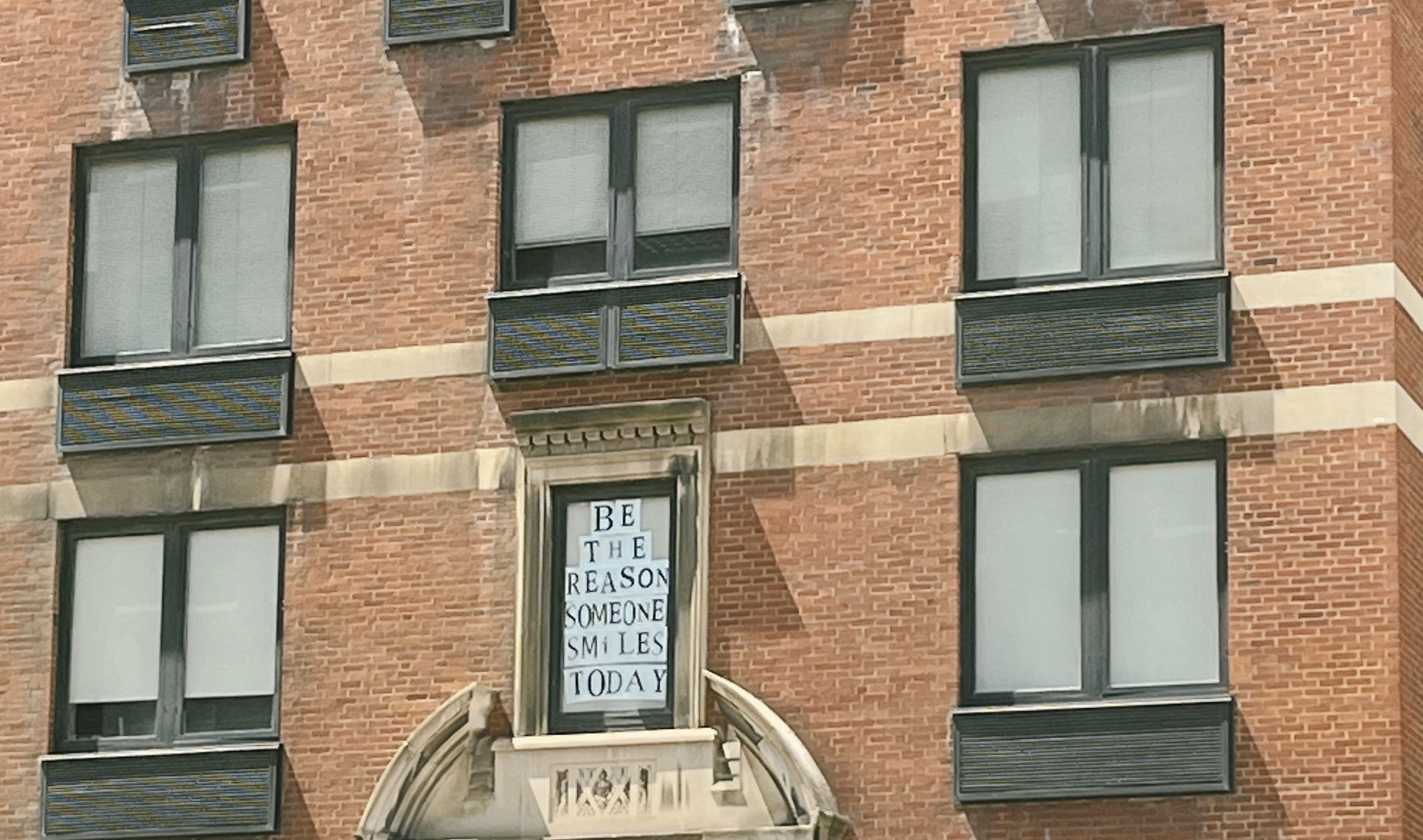
An Introduction to Distinctly Human
For the reasons above, I’ve struggled with the idea of contributing to this mass of information on the internet. I’ve spent time contemplating the direction I want to aim my efforts towards and how I want to exist in the world. A classic quarter-life crisis. Clarity came when I realized that this was all a choice. I can choose to write, and you can choose to engage. With that, I am taking matters into my own hands. I intend to be contemplative, not reactive. Organic, not artificial. Quality, not quantity. Present, not absent. I intend to create by the rules of myself, not by the rules of what promotes myself.
I’ve settled on the stance that to be individuals who support collective growth, we cannot all be fighting for air with opinions that cloud our thinking. Reactionary media is only exacerbating our issues of division, and a million think pieces on the same topic are not contributing to growth but stunting our expansion. Things happen, and to quote John Mulaney, “Yeah, that’s how all of life works.” We can choose what we create, how we create, and what we engage with. Continuing to engage with rage-bait is only going to continue to incentivize like content and further our falling into division. There is an individual responsibility that each of us has. We must recognize what we are choosing to occupy our minds with. Consumption is a choice, just as creation is a choice. If we all aim for external rewards, we will ultimately fail in the act of creating ourselves, disallowing internal fulfillment while feeding algorithms material.
Going forward, you can expect depth over breadth. I will create, write with a purpose. In some ways, I am attempting to be the opposition to an algorithm that rewards polarizing efforts. I intend to work with integrity, creativity, and sustainability. In order to do so, I must sit with my ideas and allow them to prosper instead of rushing to produce something. I am not of the view that worth depends on productivity, but more so that it depends on proclivity. Work must remain something we want to do for quality to be made. Further, I cannot write as a hypocrite who advocates for less time spent on screens while hoping you’ll turn to yours to read my words so often. Lastly, in conjunction with my belief that we need less time on screens and more time in connection with others, I believe that our time should be spent living. At least, that is where most of my inspiration transpires. I’ll report back when I have something to say, and I promise to make a lengthier read worth your while.
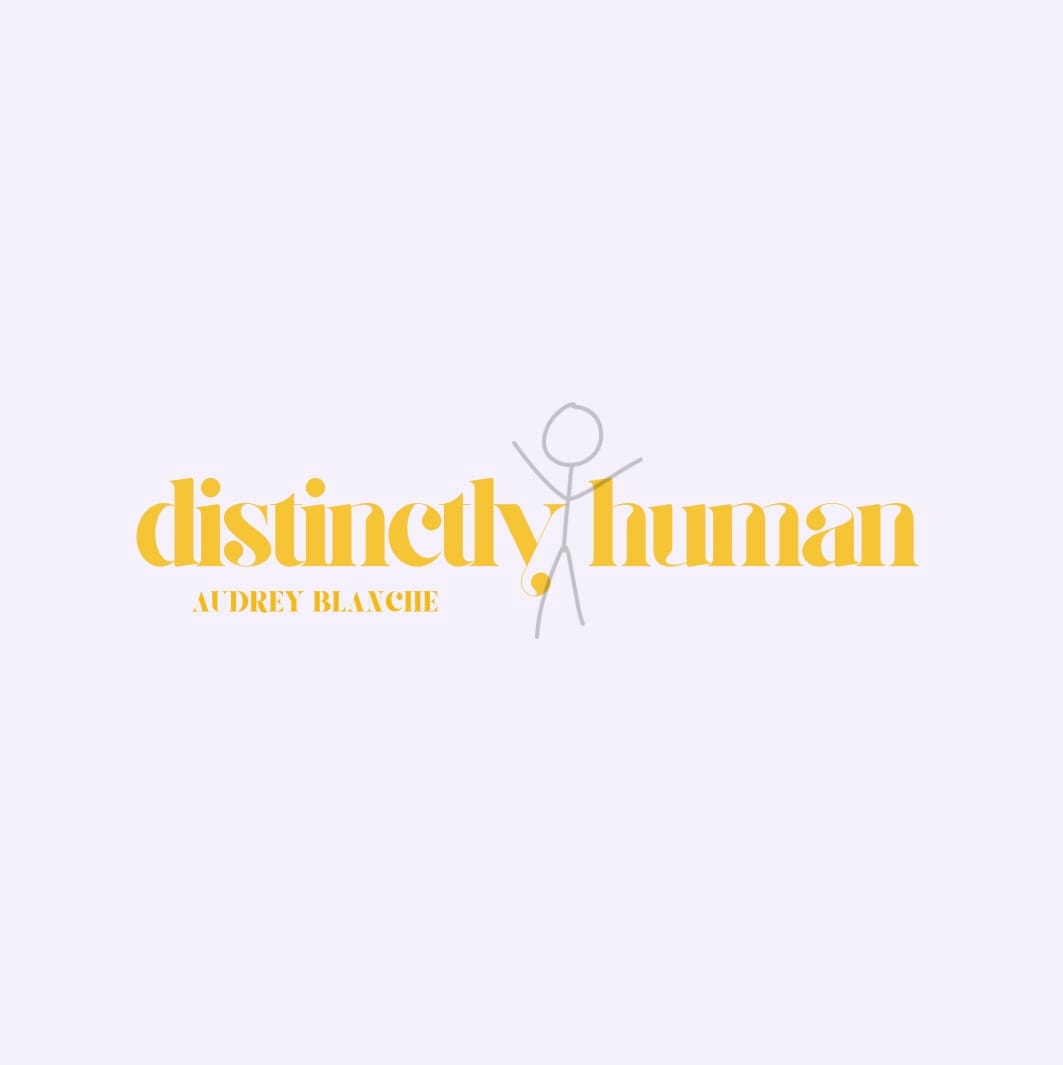

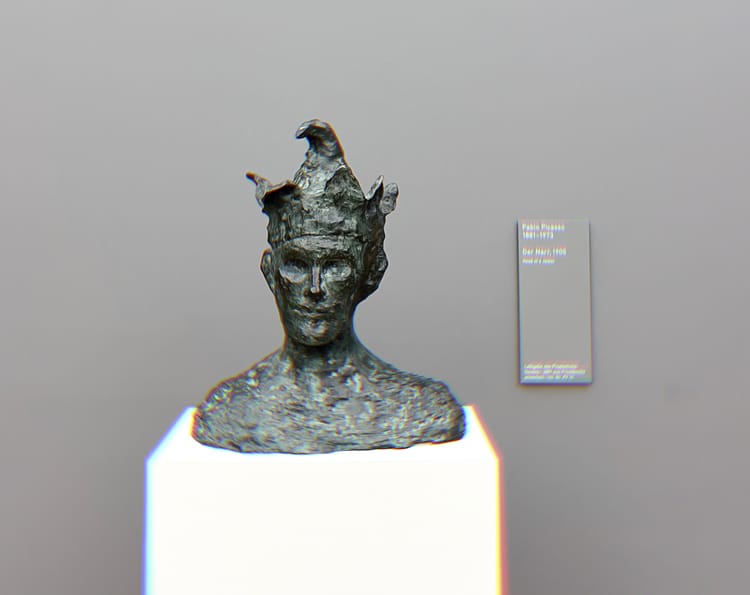

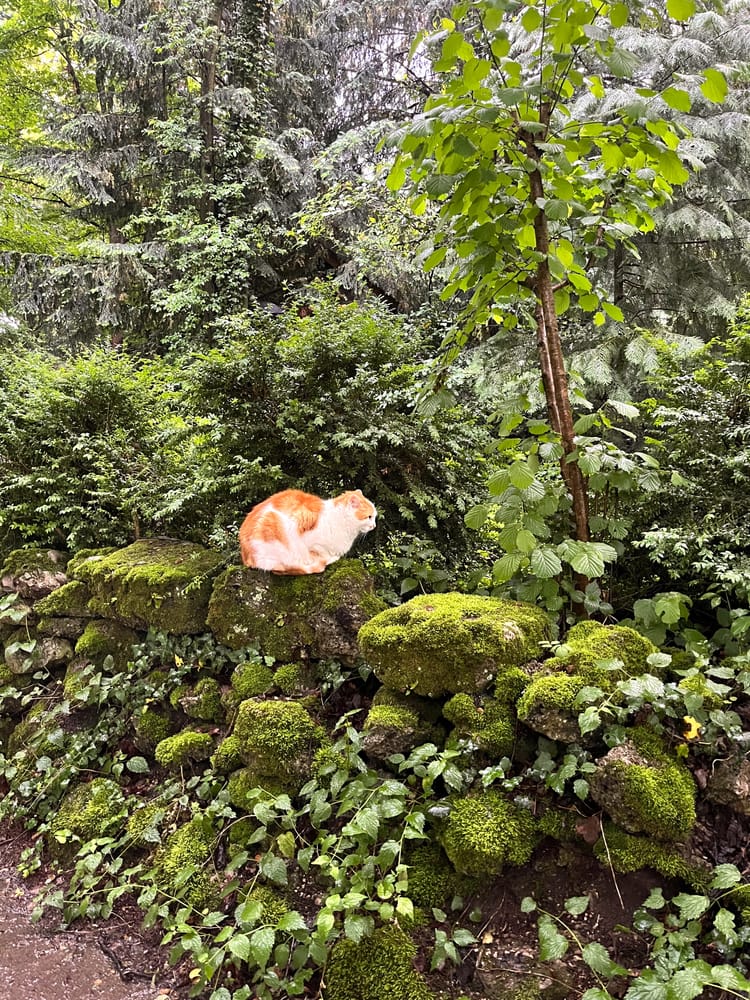
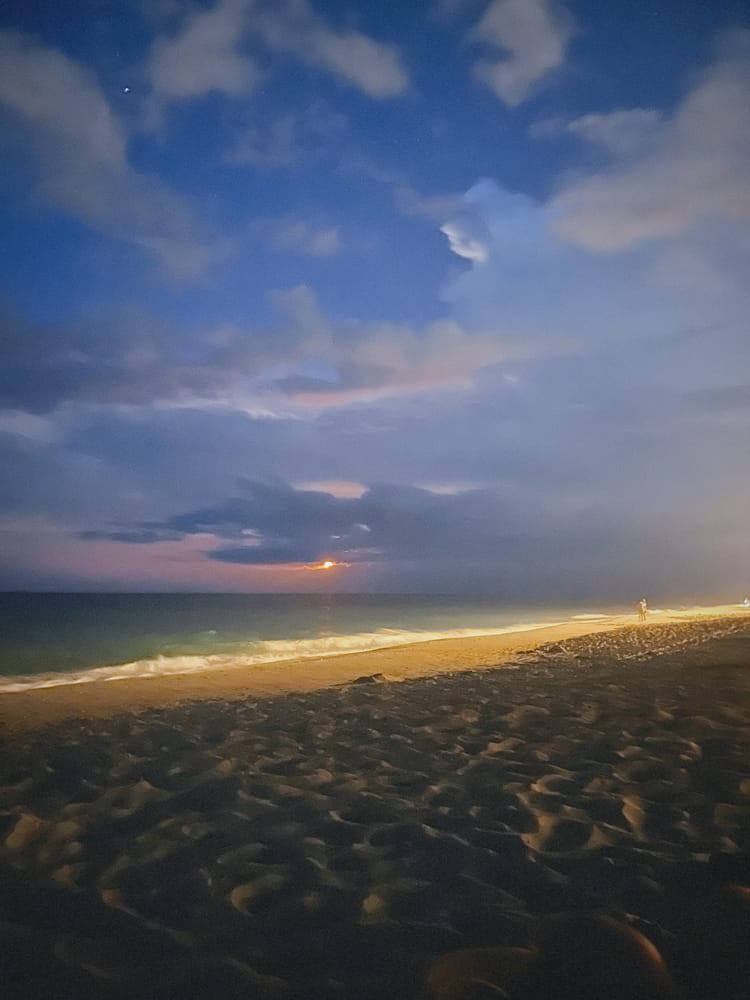
Member discussion